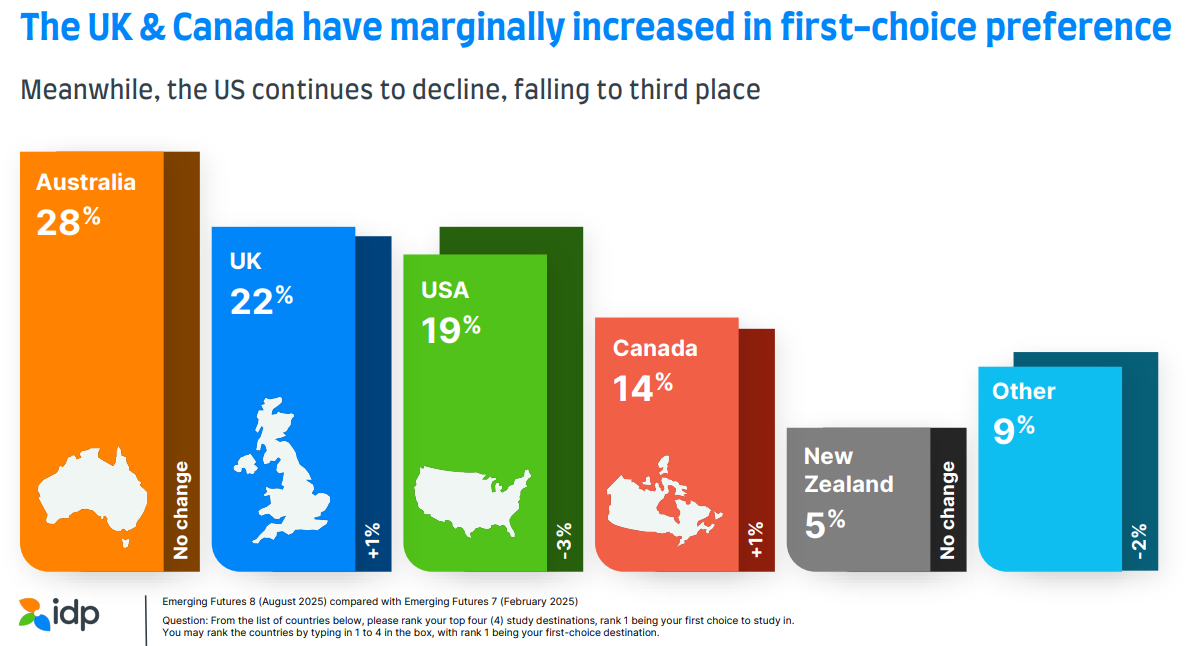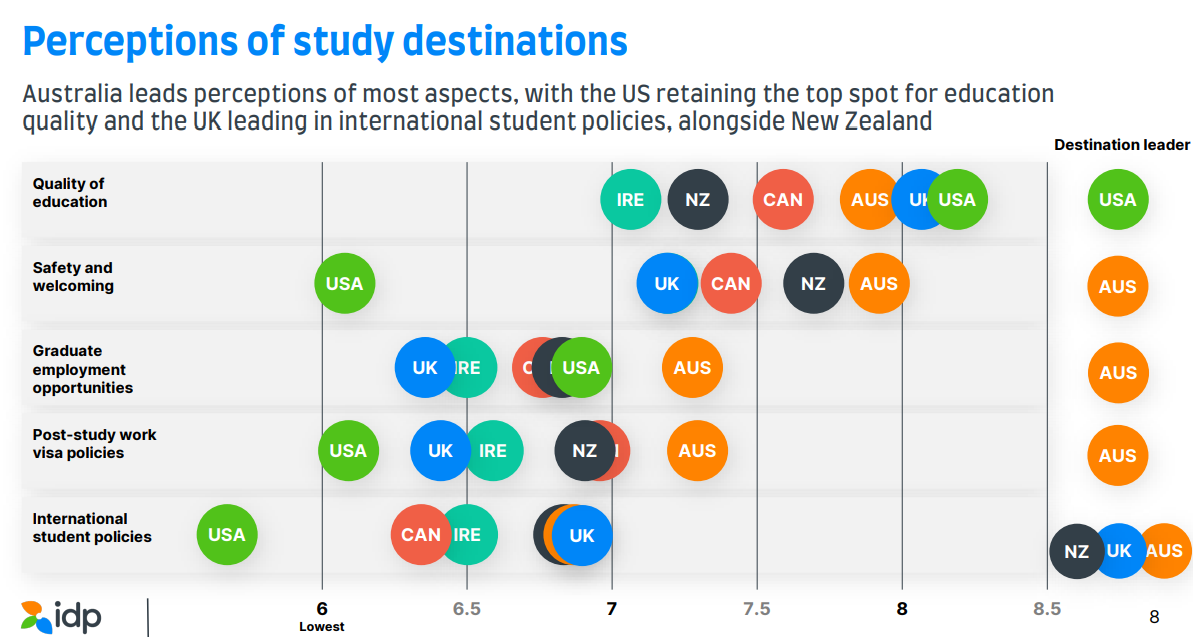
Applying to KAUST - Your Complete Guide for Masters & Ph.D. Programs (Upcoming Admissions)
Admissions Overview & Key Requirements

International students and their families are showing remarkable resilience amid rising tuition fees, visa costs and living expenses, yet unpredictable government policy changes are now threatening their global study ambitions, according to the latest Emerging Futures: Voice of the International Student survey by international education specialist IDP Education.
The study gathered the views of 7,922 students from 134 countries and regions. Among the 7,922 respondents, the largest source markets were India with 1,557 students and China with 1,125, followed by Bangladesh, Nigeria, Pakistan, Ghana, the Philippines, Indonesia, Nepal and Taiwan. Postgraduate students made up 60 percent of participants, while undergraduates accounted for 26 percent and pathway or vocational learners for 11 percent. In terms of study status, 41 percent were applied students, 30 percent were prospective, 22 percent were current, and 4 percent were decliners.
The survey reveals that while affordability remains the biggest barrier, families are finding ways to manage the costs through scholarships, part-time work, and careful planning. Confidence, however, falters when visa or work-right policies change abruptly or when governments fail to communicate those changes clearly. Students identified New Zealand as providing the clearest guidance on visa and arrival processes, followed by Canada and Australia, while the United States and the United Kingdom were rated lowest. In countries such as Malaysia, the Philippines, and the UAE, unclear or sudden announcements have already prompted many students to delay or redirect their applications.
The findings indicate that consistent and transparent communication is emerging as a decisive factor in destination choice. The United Kingdom recorded the steepest rise in students withdrawing from plans to study there, while Canada’s share of “decliners” has eased, suggesting that clearer messaging may be restoring stability. Australia remains the most popular first-choice destination globally, chosen by 28 percent of respondents, while the UK stands at 22 percent, the US at 19 percent, Canada at 14 percent, and New Zealand at 5 percent.

Beyond destination rankings, student perceptions also paint a nuanced picture of global competitiveness. Australia leads in most dimensions, particularly in graduate employment opportunities, value for money, and post-study work pathways. The United States retains its top position for the quality of education, while the United Kingdom and New Zealand are regarded most favorably for international student policies and inclusiveness.

India, Pakistan, and Bangladesh stand out as critical markets for prospective students, with 60%+ of students ready to apply within six months. These markets require immediate outreach, fast-tracked application support, and proactive conversion strategies to capture intent before it wanes
For full findings, visit: https://partners.idp.com/articles/student-insights/uk-media-release-emerging-futures-8-voice-of-the-international-student
Share

Applying to KAUST - Your Complete Guide for Masters & Ph.D. Programs (Upcoming Admissions)
Admissions Overview & Key Requirements

Registration Opens for SAF 2025: International STEAM Azerbaijan Festival Welcomes Global Youth
The International STEAM Azerbaijan Festival (SAF) has officially opened registration for its 2025 edition!

An mRNA cancer vaccine may offer long-term protection
A small clinical trial suggests the treatment could help keep pancreatic cancer from returning

Young Leaders Union Conference 2025 in Paris (Fully Funded)
Join Global Changemakers in Paris! Fully Funded International Conference for Students, Professionals, and Social Leaders from All Nationalities and Fields

Yer yürəsinin daxili nüvəsində struktur dəyişiklikləri aşkar edilib
bu nəzəriyyənin doğru olmadığı məlum olub. Seismik dalğalar vasitəsilə aparılan tədqiqatda daxili nüvənin səthindəki dəyişikliklərə dair qeyri-adi məlumatlar əldə edilib.

Lester B Pearson Scholarship 2026 in Canada (Fully Funded)
Applications are now open for the Lester B Pearson Scholarship 2026 at the University of Toronto!